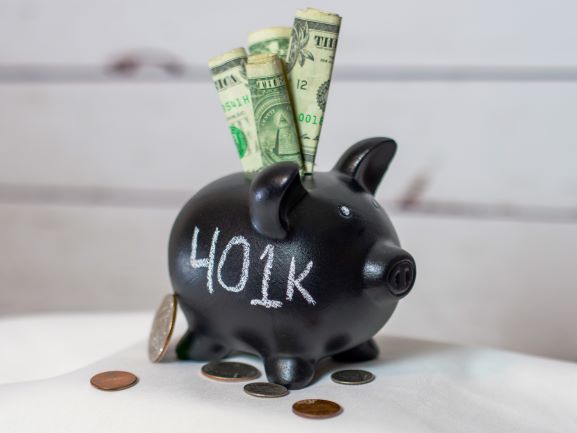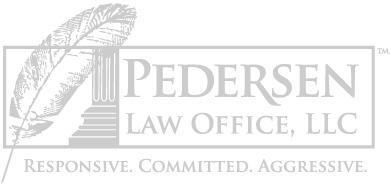401(k) Loan or File Bankruptcy?
Jul 30, 2019

You have been investing in your 401(k) plan for over a decade and have a decent amount of money gaining compounded interest. However, life happened and you find yourself in unexpected debt. Whether the debt is from medical problems, loss of a job, divorce or just unplanned expenses, you are having a hard time managing the debt. You are thinking about taking out a 401(k) loan to pay the debt off and stop the collections calls, garnishment or foreclosure that is looming just around the corner. Before you do, review all your options carefully.
401(k) LOANS
A 401(k) loan is basically just borrowing from yourself. 401(k) loans typically have lower interest rates than credit cards and the interest that you pay is to your own account. They also have no impact to your credit score. This is why many people borrow from their 401(k) to pay down their debt and it seems like a decent option. However, there are many negatives that people overlook.
The IRS limits 401(k) loans to $10,000 or one half of your retirement plan balance, up to a limit of $50,000. Also, the loan must be paid back in five years or less. These are the IRS limits, but your company has the final say on the terms and can offer much less. If you lose your job or change employers, the loan must be paid back right away. If not, the IRS will consider the remaining balance as a distribution, which can have major tax consequences plus you will incur a 10% early withdrawal penalty unless you are 59 ½ or older.
Keep in mind, your 401(k) loan may not be enough to pay off all of your debts. Many of our bankruptcy clients have a 401(k) loan because they were trying to take care of their debt. The problem was the borrowed money wasn’t enough to cover their debt. Plus, after taking out the 401(k) loan, their take home pay was even less than before and they ended up filing bankruptcy anyways. In Bankruptcy your retirement accounts are 100% protected, however, a 401(k) loan cannot be wiped out in bankruptcy; it will still need to be repaid. As you can see, a loan on your 401(k) should be your last resort. First, look into the following options.
SECTION 128
If you are dealing with a small amount of debt, let’s say $10,000, a Section 128 could be a great option. A Section 128, sometimes called a Chapter 128, is a debt repayment program that is ordered by the Wisconsin State Court. It combines several debts into one payment at zero percent interest. The court orders the creditors you put into your Section 128 to participate, which means they have to stop all interest from accruing and stretch out the payments over a 3-year period. Also, they are no longer allowed to harass you for payment and, instead get their payments from the Trustee appointed to your case. Creditors listed in the Section 128 are not allowed to garnish your wages. If they are already garnishing your wages, they have to stop garnishing once the Section 128 is filed. For every $10,000 you put into the Section 128, your payment is approximately $300.00 per month and your debt will be paid in full in 3 years.
BANKRUPTCY
Chapter 7 Bankruptcy
If you are dealing with a large amount of debt or don’t believe you would be able to afford a Section 128 payment, then we would look at a Chapter 7 Bankruptcy. We would make sure your income qualifies for filing a Chapter 7 Bankruptcy and we can protect all of your assets. A Chapter 7 Bankruptcy stops collection calls, garnishments and allows you to discharge your unsecured debts. With secured debts, such as mortgages and vehicle loans, you get to choose whether you want to keep your property and continue paying for it, or surrender the property and no longer be responsible for the debt.
Chapter 13 Bankruptcy
If you make too much money to qualify for a Chapter 7 Bankruptcy or if you want to save your home from foreclosure or car from repossession, we would look at a Chapter 13 Bankruptcy. In a Chapter 13 Bankruptcy the court will stop the foreclosure and allow you to start making your regular home payments again. The amount you are behind on the home is paid off over a 3 to 5-year repayment window at 0% interest. If you have an automobile loan, that loan is also taken and rewritten over that 3 to 5-year window. You can also take care of property tax issues or money owed to the IRS or State of Wisconsin. Also, in a Chapter 13 Bankruptcy the court will take your unsecured loans, medical bills, credit cards, pay day loans or any other debt that doesn’t have collateral attached and allow you to pay those back at a reduced percentage. If your income qualifies, you can even end up paying your unsecured creditors 0% in your Chapter 13 Plan.
FREE CONSULTATIONS
It probably took you over a decade to reach the balance you have in your 401(k). The amount of time it would take to replenish your 401(k) will be much greater than the amount of time needed to rebuild your credit after bankruptcy.
Pedersen Law Office, LLC offers free consultations and will meet with you personally to discuss your present circumstance, current assets, debts and income to find out what options are available for you. Our law office serves the communities of Appleton, Neenah, Menasha, Oshkosh, Green Bay and their surrounding areas.
